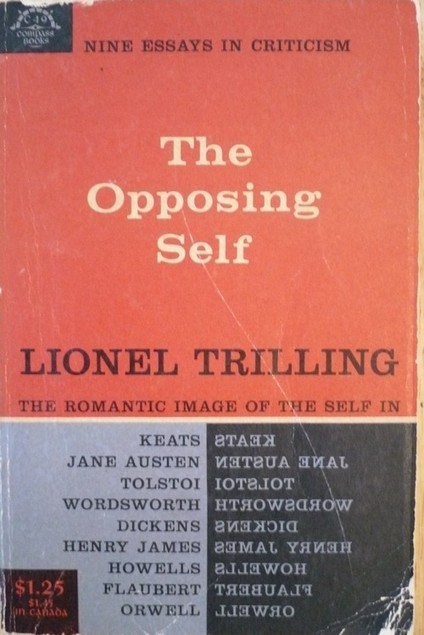New York: Viking, 1955.
Summary: “Analytical studies trace the development theme of the individual in selected novels, letters, and poems from the end of the eighteenth century to the present.”
Excerpt:
The best account of the strange, bitter, dramatic relation between the modern self and the modern culture is that which Hegel gives in the fourth part of his Philosophy of History. Few people nowadays have a good word for Hegel, and I—who am not, I had better say, a Hegelian—have no doubt that he is in everybody’s bad books for the right reasons. But if we think of Hegel not in his political aspect but simply as an observer and describer of the developing culture of our time, we cannot but recognize his power. It was he who first spoke of the “alienation” which the modern self contrives as a means for the fulfillment of its destiny, and of the pain which the self incurs because of this device of self-realization. And it was he who, speaking of the principle of culture, and of course speaking in its defense, referred to it as the terrible principle of culture.
Contents
The Poet as Hero: Keats in his letters
William Dean Howells and the Roots of Modern Taste
George Orwell and the Politics of Truth
Online:
Google Books
Amazon

